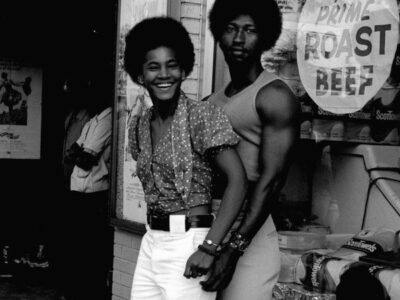Generation Black TV - Live
--- Main Blog Content Below ---
Ethiopian Film Week was born two years ago and has grown in strength, as per Tights Kebede, Operations Director of Habeshaview.
For the third time ever, Ethiopian Film Week returns to London with a group of acclaimed Ethiopian feels, organized by the media, entertainment, and high technology company.
The screenings began October 14, most of which were held at RichMix Cinema in East London. They’ll be featuring three independent films from Ethiopia.
Among these, we can mention Hirut, AbatwaMannew?
This film is actually a cult classic in Ethiopia, and they’re excited to bring it to the UK 57 years after it was originally filmed. It had an exclusive screening at the Sheraton Hotel in Addis Ababa.
There’s hope that screening a classic movie might motivate the Ethiopian community in the UK, and help the British public celebrate the possibilities of Ethiopian cinema internationally.
The screening of Hirut will took place on October 15 in the presence of VIPs, dignitaries, guests, and government representatives of the Ethiopian community.
Ethiopian’s film industry is developing rapidly, and they have a long history of filmmaking that spans nearly a century or more.
Hirut is considered a classic because it was the first Ethiopian feature film, and attracted great interest in Ethiopia and abroad when it was filmed.
It was Ethiopia’s first 35 mm black and white film. The film is being screened out of Ethiopia for the first time.
There’s also “Who Is Her Father” settled in conservative Ethiopian society in the mid-1960s.
These screenings will take place at RichMix Cinema in East London. They’ll also be collaborating with the Addis Ababa Cinema Administration Agency.
The Saturday program also included special industry guests from Ethiopia, who participated in a q&a session after Hirut’s major screening.
Screening is also scheduled for the three-day event Simeta, a historical drama set in the famous One-Hundred Years’ War of the Princes (Zemene Mesafint).
Supporting international film festivals like these is important to help grow budding film industries in other countries.
The countries with the biggest film industries in the world include the United States, the UK, France, Germany, Italy, China, India, Sweden, and others.
Smaller markets usually mean smaller budgets for movies, which means films made in other countries rarely get the exposure of millions of moviegoers like films in the United States or the UK tend to have.
These initiatives help support other countries’ film industries while showcasing the talent of their directors, actors, and screenwriters.












